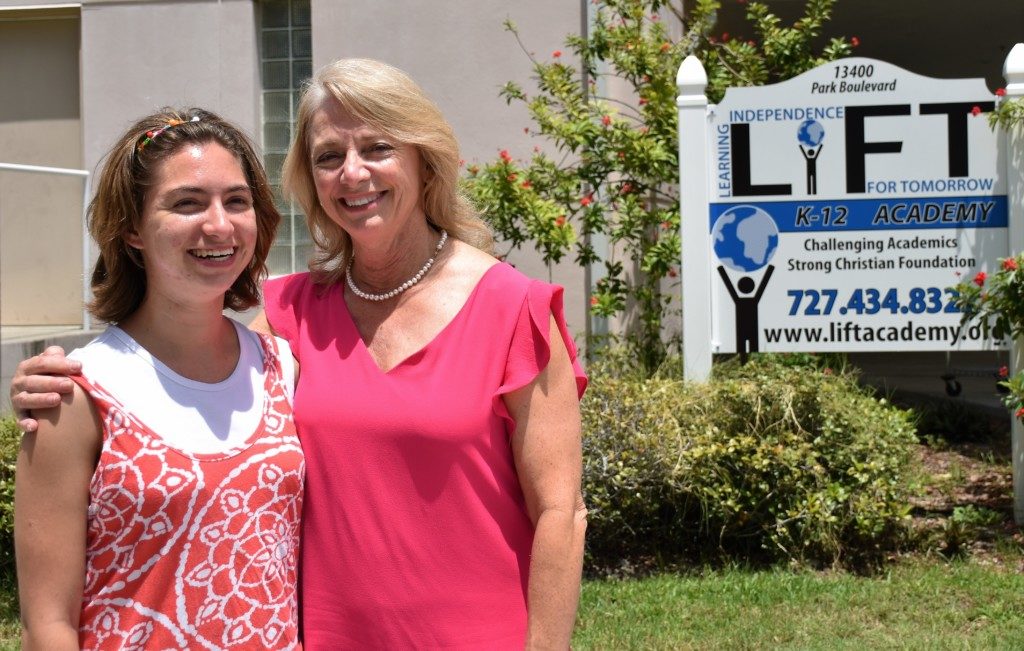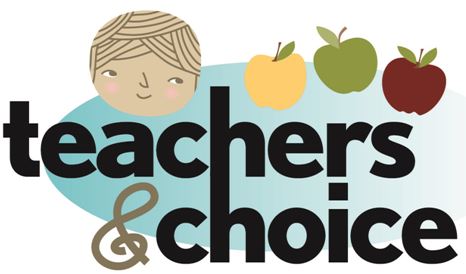
SEMINOLE, Fla. – Kim Kuruzovich’s daughter Gina has moderate autism, speech apraxia and dyslexic tendencies. She began a suite of therapies at age 2, then, at age 4, saw a psychologist for an educational evaluation.
The expert wasn’t encouraging.
“He told us, ‘You can look forward to Gina putting pencils in a box,’ ” recalled Kuruzovich, who has more than 20 years of experience teaching students with disabilities.
She and husband Mike drove home in stunned silence. It took a couple of months, but they snapped out of the haze and chose to ignore that doctor. It was the start of Kuruzovich learning to trust her instincts as a parent as much as she trusted her instincts as an educator.
Now, 19 years later, Kuruzovich is executive director of a private school built on those instincts.
LiFT, which stands for Learning Independence for Tomorrow, opened in 2013 with 17 students and five unpaid teachers who wore every hat imaginable. Today, it operates on two spacious, tree-lined church campuses. They serve more than 130 students with special needs, 124 of whom attend thanks to state-supported school choice scholarships.
“I never, ever wanted to go into administration. Ever,” Kuruzovich said. “I only ever wanted to be a teacher. I love teaching. I love seeing the kid get it and feel good about themselves.”
“What I found is I still get it as an administrator, but I get it in a bigger way. Now it’s not just my classroom, it’s every kid in this school.”
Before LiFT, Kuruzovich had taught in public, private and home schools. Her passion and talents helped make LiFT possible.
So did school choice.
Three state-supported scholarships – the McKay Scholarship, a voucher for students with disabilities; the Gardiner Scholarship, an education savings account for students with special needs such as autism; and the Florida Tax Credit Scholarship for low-income and working-class students – allow many LiFT parents to access a school they wouldn’t have been able to afford otherwise. (The Gardiner and FTC scholarships are administered by nonprofits such as Step Up For Students, which hosts this blog.) But those scholarships also opened doors for Kuruzovich and her colleagues. It gave them power to create a school that could best serve those parents – and sync with their own visions of what a school should be.
In Florida, where school choice is becoming mainstream, more and more educators like Kuruzovich are walking through those doors.
***
It’s the first week of the school year, and Kuruzovich is in peak form – gliding through hallways and classrooms, a fast-talking, wise-cracking, blond blur of smiles and warmth.
The sheer number of inside jokes she shares with her students highlights how deep her connection runs with each of them.
Kuruzovich leads a robust faculty of 40-plus and oversees two growing programs – K-12 LiFT Academy and a four-year post-secondary transition program called LiFT University.
There’s also a post-graduate program so new it doesn’t have a name.
What it does have is Gina, its first enrollee.
“It’s a pilot program,” Kuruzovich said, “and she’s the pilot.”
Look beyond Gina’s darker hair, eyes and complexion, and you’ll see mom’s smile and bubbly charm. Kuruzovich began teaching special ed years before Gina was born, but her daughter has been the inspiration behind most everything at LiFT.
There isn’t anything Kuruzovich hasn’t done and seen from the perspective of both teacher and parent, which explains one of her guiding philosophies at LiFT: “Parents are the experts.”
As a strong-willed public school teacher, Kuruzovich craved autonomy and often bucked administration to work directly with parents. But being a parent changed the way she thought about teaching. She had experienced the system from both sides and learned the importance of listening to parents.
When Gina was in public school, Kuruzovich wielded her knowledge of the IEP Matrix like a magic wand. She knew how to get what was needed. She was the parent who didn’t back down.
“I want to make sure my kids get everything they deserve and have the right to get,” she said. “And I want that for every kid here, too.”
“There are a lot of people who don’t have that knowledge. So if you don’t go out and figure it out yourself or have a background, you’re stuck. And that’s sad. Not everybody has the resources that I had, the background that I had to make good decisions.”
That explains the tightness of the LiFT community. Collaboration and engagement are wired into the walls.
“It’s not a cookie cutter,” said Betsy Torop, whose son was in the first class to graduate LiFT University last May and whose daughter is now a senior in LiFT Academy. Both attended public schools, and they eventually ran into the limits of what those schools could provide. “There’s a particular willingness to talk about what the child needs and to make that change. Kim set that tone.”
***
After years of navigating public school as a mom and becoming entrenched in the advocacy community, it was finally time to return to teaching.
Kuruzovich spent six years at a private school, where she valued the freedom to do things differently. Gina was enrolled, too. They became close with several of the moms and children with neurodiversities who were the same age as Gina.
When the school struggled with administrative issues (and eventually closed), a parent asked Kuruzovich to homeschool her child along with Gina. Another urged her to open a school.
Kuruzovich and some of her mom friends there had already been working on a business plan for a transition program named LiFT University that would serve their kids and others after high school. But with some of their kids in 11th grade, suddenly there was a need for a K-12 school instead.
LiFT Academy was born six weeks later.
“We basically went online,” Kuruzovich said, “and searched for ‘How do you open a private school in Florida?’ ”
Fast forward six years. Last spring, Gina walked with the first graduating class at LiFT U. Like her two classmates, she has a job, strives to live as independently as possible, and wants to get out of her parents’ house.
That’s Kuruzovich’s next goal – a long-term living community for young adults, which could also offer a residence for LiFT University students. It’s not something she ever foresaw, but Kuruzovich has learned to listen to the universe.
As always, Gina is the guide. If she wants it, it means there are others who do, too. She works four days a week at a retirement community and spends every Friday at LiFT, working with her post-grad teacher on their craft and design microbusiness. She goes out to movies with friends, goes on dates, uses rideshare services frequently.
“Things I always wanted for my daughter, I’ll fight tooth and nail for them,” Kuruzovich said, “but could she really do them? Turns out, yeah.”
“She certainly can do more than put pencils in a box.”


